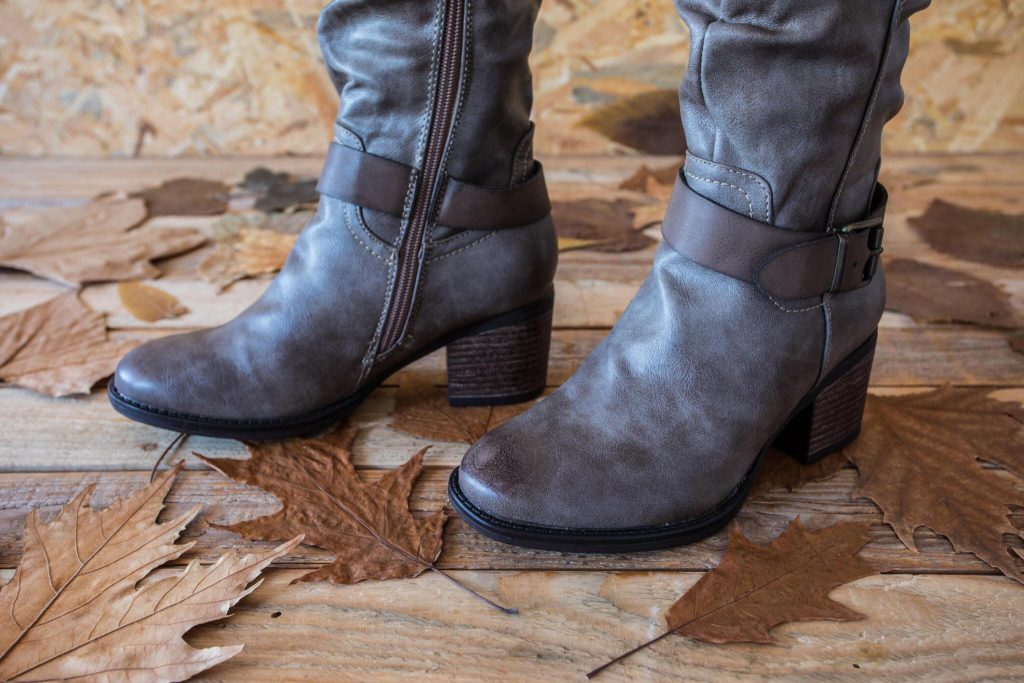Snakes, with their potent venom and menacing fangs, evoke fear and curiosity in equal measure. For those venturing into snake-infested territories, the question of whether snakes can penetrate protective footwear looms large. In this comprehensive guide, we delve into the age-old query: Can snakes bite through leather boots? Let’s separate fact from fiction and equip you with the knowledge to stay safe in snake country.
Can Snakes Bite Through Leather Boots?
The allure of leather boots lies in their durability and ruggedness, but can snakes bite through leather boots and penetrate their protective barrier? Let’s delve into the intricacies:
-
Leather as a Barrier
Genuine leather boasts impressive tensile strength and thickness, making it inherently resistant to snake fangs. While some snake species may manage to puncture through thin or worn-out leather, the risk of penetration is significantly lower compared to other materials. -
Snakes vs. Leather
Snakes rely on their fangs to deliver venomous bites, but the ability to puncture through leather hinges on various factors, including the angle and force of the strike, as well as the condition of the leather boots. -
Practical Considerations
Investing in high-quality, thick leather boots specifically designed for snake protection can provide an added layer of security in snake-prone environments. Regular maintenance and inspection of leather boots are essential to ensure optimal durability and effectiveness against snake bites.
Can Rattlesnakes Bite Through Leather Boots?
Rattlesnakes, renowned for their potent venom and distinctive warning rattle, pose a significant threat to outdoor enthusiasts. Let’s address the common concern:
-
The Rattlesnake Enigma
Rattlesnakes, like other venomous serpents, possess long, hollow fangs designed to inject venom into their prey or perceived threats. While rattlesnakes are capable of striking with considerable force, their ability to penetrate leather boots is largely dependent on factors such as fang size and boot thickness. -
Fang Penetration Dynamics
A rattlesnake’s fangs can exert substantial pressure during a strike, but the likelihood of puncturing through thick leather remains relatively low. However, caution is warranted, as repeated strikes or compromised boot integrity may increase the risk of penetration. -
Snake-Proof Solutions
For individuals traversing rattlesnake habitats, investing in purpose-built snake-proof boots with reinforced materials and puncture-resistant features offers unparalleled peace of mind. These specialized boots undergo rigorous testing to ensure maximum protection against snake bites, including those from rattlesnakes.
Can Snakes Bite Through Rubber Boots?
Rubber boots have long been touted as a barrier against snake bites, but are they truly impenetrable? Let’s explore the realities:
-
The Myth of Rubber Protection
While rubber boots offer some degree of protection against snake bites, they are not entirely foolproof. Certain snake species possess fangs capable of piercing through rubber material, albeit with greater difficulty compared to softer fabrics. -
Factors to Consider
The thickness and quality of the rubber, as well as the size and venom potency of the snake, play crucial roles in determining the effectiveness of rubber boots as snake bite deterrents. -
Mitigating Risks
To enhance protection, opt for high-quality rubber boots specifically designed for snake resistance. Additionally, exercise caution and employ other safety measures, such as avoiding tall grass and rocky terrain where snakes may lurk.

What Makes a Boot Snake Proof?
Snake-proof boots are engineered to withstand the formidable challenge posed by venomous serpents. Here’s a closer look at the key features:
-
Puncture-Resistant Materials
Snake-proof boots typically incorporate dense, puncture-resistant materials such as Kevlar or ballistic nylon into the construction. These layers act as formidable barriers against snake fangs, minimizing the risk of penetration. -
Reinforced Construction
High-quality snake-proof boots feature reinforced toe caps and heel counters to provide additional protection in vulnerable areas. Double or triple stitching along stress points enhances durability and structural integrity, ensuring long-lasting performance in snake-infested terrain. -
Flexible Yet Protective Design
Despite their robust construction, snake-proof boots are designed to offer flexibility and comfort for extended wear. Strategic placement of flexible panels and ergonomic shaping allows for natural movement without compromising on safety. -
Waterproofing and Breathability
Many snake-proof boots incorporate waterproof membranes to keep feet dry and comfortable in wet conditions. Breathable linings and moisture-wicking properties ensure proper ventilation, preventing discomfort and odor buildup during prolonged use. -
Certifications and Standards
Look for snake-proof boots that adhere to industry standards and certifications, such as ASTM F2413 for puncture resistance. These certifications validate the boot’s ability to withstand puncture forces equivalent to those exerted by venomous snakes.
Do Snake Proof Boots Work?
Snake-proof boots claim to offer unparalleled protection against venomous snake bites, but do they deliver on their promises when it comes to the question, can snakes bite through leather boots? Let’s examine the evidence:
-
Field-Tested Performance
Snake-proof boots undergo rigorous testing to assess their effectiveness against simulated snake strikes. These tests evaluate factors such as puncture resistance, material durability, and overall performance in real-world scenarios. -
Positive Testimonials
Countless outdoor enthusiasts and professionals attest to the efficacy of snake-proof boots in preventing snake bites. Personal anecdotes and testimonials highlight instances where snake-proof boots have successfully thwarted potential snake encounters, saving lives and limbs in the process. -
Manufacturer Guarantees
Reputable manufacturers of snake-proof boots often stand behind their products with generous warranties and satisfaction guarantees. This commitment to quality assurance underscores the confidence they have in the performance and reliability of their snake-proof footwear. -
Continual Innovation
As technology advances and materials science progresses, snake-proof boot designs continue to evolve to offer enhanced protection and comfort. Manufacturers invest in research and development to stay ahead of emerging threats and improve the overall safety and performance of their products.
Do All Snakes Have Fangs?
Fangs are synonymous with venomous snakes, but do all snake species possess these specialized teeth? Let’s explore the fascinating world of snake dentition:
-
Venomous vs. Non-Venomous
Fangs are primarily associated with venomous snake species, which use these specialized teeth to inject venom into their prey or predators. Non-venomous snakes, on the other hand, lack fangs and typically rely on constriction or other methods to subdue their prey. -
Variety of Fang Types
Venomous snakes exhibit a diverse array of fang types, ranging from long, hollow hypodermic-like fangs found in vipers and elapids to grooved or even rear-fanged adaptations in certain colubrid species. Each fang morphology is finely tuned to the snake’s feeding ecology and hunting strategies. -
Fang Functionality
Fangs are not just tools for delivering venom; they also play crucial roles in snake feeding behaviors and defense mechanisms. Some species possess retractable fangs that fold against the roof of the mouth when not in use, while others have fixed, permanently exposed fangs. -
Non-Venomous Adaptations
Non-venomous snakes have evolved an impressive array of dental adaptations suited to their ecological niches. Some species possess rows of recurved teeth for gripping and swallowing prey, while others exhibit specialized adaptations for crushing shells or slicing through tough prey items.
Are Snake Boots Worth it?
Snake boots promise unparalleled protection against venomous snake bites, but are they a worthwhile investment? Let’s weigh the pros and cons:
-
Enhanced Safety
Snake boots offer peace of mind and added protection for outdoor enthusiasts, hunters, and professionals working in snake-infested areas. The puncture-resistant materials and reinforced construction provide a formidable barrier against snake fangs, reducing the risk of injury or envenomation. -
Versatile Utility
Snake boots are not just for snake encounters; they also offer protection against sharp objects, thorns, and other hazards commonly encountered in rugged terrain. Their durable construction and waterproof features make them ideal footwear for hiking, camping, and outdoor activities beyond snake country. -
Long-Term Savings
While snake-proof boots may come with a higher upfront cost compared to standard footwear, they offer long-term value in terms of safety and durability. Investing in quality snake boots can prevent costly medical bills and potential loss of income resulting from snake bite injuries. -
Comfort Considerations
Some users may find snake boots to be heavier and less breathable than traditional hiking or work boots, particularly during hot weather. However, advancements in design and materials have led to the development of lightweight, breathable snake boots that prioritize comfort without compromising on protection. -
Personal Preference
Ultimately, the decision to invest in snake boots depends on individual risk tolerance, budget constraints, and intended use. For those frequently venturing into snake-prone environments or seeking maximum protection, snake boots are undoubtedly a worthy investment.
While snake-proof boots offer significant protection against venomous snake bites, they are not infallible when it comes to addressing the concern of whether can snakes bite through leather boots. Understanding the capabilities and limitations of snake-proof footwear, along with practicing safe behaviors in snake-prone environments, is essential for minimizing the risk of snake encounters. By investing in high-quality snake-proof boots, maintaining them properly, and remaining vigilant in the field, outdoor enthusiasts can enjoy peace of mind and enhanced safety during their adventures in snake country.
FAQs
While rubber boots provide some degree of protection against snake bites, certain snake species with strong fangs may still penetrate the material. For optimal protection, consider investing in purpose-built snake-proof boots.
No, not all snake species possess fangs. Fangs are primarily associated with venomous snakes, which use these specialized teeth to inject venom into their prey or predators. Non-venomous snakes lack fangs and typically rely on other means to subdue their prey.
Snake-proof boots feature puncture-resistant materials such as Kevlar or ballistic nylon, reinforced toe caps, and heel counters to provide protection against snake fangs. Additionally, waterproof membranes and breathable linings enhance comfort and durability.
While some snake-proof boots may feel heavier or less breathable than traditional footwear, advancements in design and materials have led to the development of lightweight, breathable options that prioritize comfort without compromising on protection.
Yes, snake boots offer enhanced safety and protection for individuals venturing into snake-infested areas. Investing in quality snake boots can prevent costly medical bills and potential loss of income resulting from snake bite injuries, making them a worthwhile investment for those at risk.








